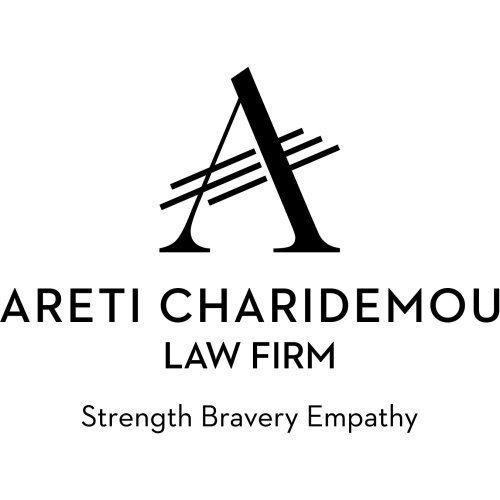Best Lawyers in Greece
Share your needs with us, get contacted by law firms.
Free. Takes 2 min.
Or refine your search by selecting a city:
List of the best lawyers in Greece
Greece Legal Questions answered by Lawyers
Browse our 3 legal questions in Greece and read the lawyer answers, or ask your own questions for free.
- “Constructive dismissal and non-payment of salary and accrued vacation pay (Greece)”
- I am seeking legal advice regarding constructive dismissal and the non-payment of outstanding salary and accrued vacation pay under Greek labour law. I was employed in Greece under a contract that allowed for a 24/7 operational framework, while in practice I worked remotely under stable working arrangements. In a short... Read more →
-
Lawyer answer by SIOPI LAW
This is a complicated matter that cannot be answered here shortly. It requires a consultation. What I could tell you though is that indeed there is a legislation for constructive dismissal cases in Greece and you indeed have grounds to...
Read full answer - Can I get a free immigration lawyer?
- Δικηγορικός σύλλογος Ρόδου As a mother living Greece for over 10 years now with 3 Greek children can I get help in getting citizenship?
-
Lawyer answer by AT LEGAL
In order to apply for Greek citizenship, a lot of prerequisites should be met. First of all, the type of residence permit you are holding needs to be checked, and also your absences from Greece should not be very long....
Read full answer - Legal assistance to communicate on behalf of a debtor with Debt Collection Agency in Athens, Greece
- Credit card debt was sold by the initiating bank to a debt collection company many years ago. Their attempts at making contact have been ignored by the debtor until now. A lawyer is required to negotiate on behalf of the debtor
-
Lawyer answer by Law Office Attorney SVETISLAV STOJANOSKI, LL.M.
ReI am from North Macedonia neighbor country of Greece, I can give you legal assistance to communicate with them. Regards, Svetislav Stojanoski Attorney at law
Read full answer
Greece Legal Articles
Browse our 2 legal articles in Greece written by expert lawyers.
- Debt Collection in Greece: Stop Harassment and Verify Debt
- In Greece, debt collectors must follow Law 3758/2009: calls only Monday-Friday 09:00-20:00, not on weekends or holidays, no more than one contact every two days, and no contact for 10 days after the debt becomes overdue. You can stop calls fast by telling them to communicate only in writing and... Read more →
- Greece Golden Visa Laws and Process: A Practical Guide
- Key Takeaways Greece’s main immigration law is Law 4251/2014 (Immigration and Social Integration Code), extensively amended by Law 5038/2023 and other acts. Most third-country nationals need a national visa (Type D) from a Greek consulate, then apply for a residence permit inside Greece at the competent Decentralized Administration or via... Read more →
About Hiring a Lawyer in Greece
Hiring a lawyer in Greece involves several steps that ensure you are adequately represented in legal matters. Firstly, it is crucial to identify the type of lawyer you need, as Greece's legal system involves various specializations such as civil law, criminal law, commercial law, and family law. Once you determine the appropriate lawyer, research their background, check their credentials, and consider their experience and reviews. Contact the lawyer to discuss your needs and confirm their fees, as costs can vary greatly depending on the complexity of your legal issues. Finally, ensure you understand the terms of engagement and agree on a clear communication channel.
Why You May Need a Lawyer
There are numerous situations in Greece where legal assistance might be necessary. People often require the services of a lawyer when dealing with property transactions, as the process is complex and involves thorough due diligence. Family-related issues, like divorces and child custody, are other common scenarios requiring legal intervention. Business owners might need legal advice on compliance with local business laws. Additionally, personal injury cases, criminal charges, debt recovery, and employment disputes are scenarios where a lawyer's expertise is essential for navigating the Greek legal system effectively.
Local Laws Overview
The legal system in Greece is based on the civil law tradition, meaning it is primarily governed by codified statutes. Key aspects relevant to lawyers include the Hellenic Civil Code, which governs family, contract, property, and inheritance law. The Penal Code outlines criminal laws. In business, many lawyers need expertise in company and tax law, governed by specific statutes like the Hellenic Commercial Code. Also, the Greek Constitution sets forth fundamental rights and protections, acting as a primary reference point in many legal disputes. Understanding these codes is vital for any practicing lawyer in Greece.
Frequently Asked Questions
How can I find a reputable lawyer in Greece?
Start by checking with the Greek Bar Association, which can provide a list of lawyers with specific expertise. Additionally, personal recommendations and online reviews can be helpful sources.
What should I ask during a consultation with a lawyer?
Inquire about their experience with similar cases, their approach to your legal issue, estimated costs, and the expected timeline for your case.
Is it mandatory to have a lawyer in court in Greece?
For certain civil cases and criminal law matters, legal representation is mandatory. However, less serious cases may not require a lawyer, though having one is advisable.
How are legal fees structured in Greece?
Fees may be charged hourly or as a flat fee. Sometimes, a retainer fee is required upfront. Always clarify the billing structure before proceeding.
Can I get legal aid in Greece?
Yes, eligible individuals can receive legal aid under certain conditions. Legal aid in Greece is typically provided to those who cannot afford legal services.
What qualifications must Greek lawyers have?
Lawyers in Greece must have completed a law degree, passed the bar exam, and be registered with a bar association in their region.
What should I do if I have a dispute with my lawyer?
Try to resolve it directly with your lawyer. If unsuccessful, you can file a complaint with the local bar association for resolution.
How long does a legal process generally take in Greece?
The duration varies significantly depending on the complexity of the case, the parties involved, and the court's schedule.
Are online legal consultations available in Greece?
Yes, many law firms offer online consultations, especially in light of modern technologies enhancing accessibility.
Can foreign nationals hire a lawyer in Greece?
Yes, foreign nationals can and often do hire Greek lawyers to assist with legal matters within the country.
Additional Resources
Consider reaching out to the following resources for additional legal support: Greek Bar Associations, the Ministry of Justice, Transparency and Human Rights, and local consulates or embassies if you're a foreign national. Online legal platforms might also provide a wealth of information and initial guidance.
Next Steps
If you're considering hiring legal assistance in Greece, start by identifying your specific legal needs and researching qualified lawyers in that field. Schedule consultations to evaluate their expertise and discuss your case. Ensure all agreements are clearly understood, and remain proactive in working with your lawyer throughout the process to achieve the best possible outcome.
Lawzana helps you find the best lawyers and law firms in Greece through a curated and pre-screened list of qualified legal professionals. Our platform offers rankings and detailed profiles of attorneys and law firms, allowing you to compare based on practice areas, experience, and client feedback.
Each profile includes a description of the firm's areas of practice, client reviews, team members and partners, year of establishment, spoken languages, office locations, contact information, social media presence, and any published articles or resources. Most firms on our platform speak English and are experienced in both local and international legal matters.
Get a quote from top-rated law firms in Greece — quickly, securely, and without unnecessary hassle.
Disclaimer:
The information provided on this page is for general informational purposes only and does not constitute legal advice. While we strive to ensure the accuracy and relevance of the content, legal information may change over time, and interpretations of the law can vary. You should always consult with a qualified legal professional for advice specific to your situation.
We disclaim all liability for actions taken or not taken based on the content of this page. If you believe any information is incorrect or outdated, please contact us, and we will review and update it where appropriate.
Refine your search by selecting a practice area.
Accidents & Injuries
Banking & Finance
Bankruptcy & Debt
Business
Civil & Human Rights
Consumer Rights
Corporate & Commercial
Criminal Defense
Employment & Labor
Energy, Environment & ESG
Family
Immigration
Insurance
Intellectual Property
Lawsuits & Disputes
Media, Technology and Telecoms
Notary Services
Private Client
Real Estate
Browse law firms by city in Greece
Refine your search by selecting a city.




































